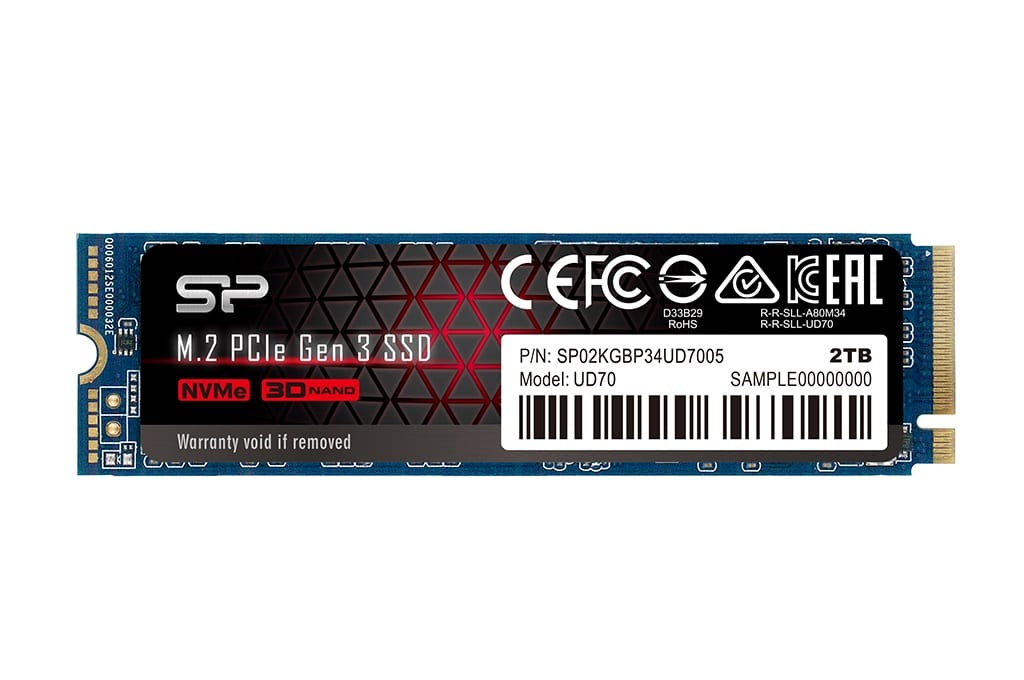
Twitter staff targeted by 'coordinated social engineering' attack as hackers hijack verified accounts in Bitcoin scam
Overnight, Twitter suffered a massive attack by hackers who tried to use the verified accounts of celebrities and high-profile users to execute a Bitcoin scam. The likes of Barack Obama, Joe Biden, Elon Musk, Bill Gates and Kanye West had their accounts hijacked and message were posted promising that if people sent money to a Bitcoin wallet, they would get double the amount back.
Needless to say, it was a crypto scam, and Twitter took the extraordinary steps of preventing all users with a blue tick from tweeting. Twitter now has control of the situation and says that the attack came after staff fell victim to social engineering, enabling hackers to gain access to internal tools which were then used to take over key accounts.

Silicon Power unveils UD70 M.2 2280 PCIe Gen3x4 NVMe SSD
Another day, another solid state drive. Yes, folks, we are once again telling you about a new SSD. There sure are a lot of new models hitting the market lately, right? This time, the drive is from Silicon Power. We recently reviewed one of that company's external SSDs, but I digress.
Called "UD70," it is a PCIe 3.0 SSD that uses 3D QLC NAND. Unfortunately, it is not a PCIe 4.0 drive like the company's similarly named US70. While a PCIe Gen 3x4 SSD is nothing out of the ordinary, Silicon Power boasts about it having superior cooling capabilities. No, it doesn't have a huge heatsink. In fact, it has no heatsink at all. Actually, SP says the cooling capabilities are baked into the UD70's firmware.

Microsoft releases Windows 10 Build 20170 to the Dev Channel with sound and search improvements
Yesterday, Microsoft rolled out a new Windows 10 Build to the Beta Channel (what used to be the Slow ring) and today the software giant follows that up with a new flight on the Dev Channel (previously the Fast ring).
Build 20170 introduces a couple of new features, but won’t be offered to Insiders running PCs with AMD processors due to a bug affecting overall usability.

Phishing attacks for the COVID-19 era: What to look out for
Despite the devastating recent outbreak of the novel coronavirus, phishing attacks continue to drag us and our businesses down. So how exactly do COVID-19 related phishing attacks work?
Cybercriminals have taken it upon themselves to wreak havoc and feed off the fears people have about the virus. Emails are being sent that ask their targets to open attachments containing information about the latest coronavirus statistics or news. Or, they claim to be from legitimate companies offering information about COVID-19.

All about quantum-safe certificates
The advent of quantum computers will render ECC and RSA encryption algorithms obsolete, requiring companies to migrate their computing systems and PKI infrastructure to new, quantum-safe cryptographic algorithms.
This migration of PKI solutions to quantum-safe crypto algorithms will pose many major challenges for many enterprises. All existing applications and systems will need to be updated to support the new quantum-safe algorithms now being developed in response to the threats posed by quantum computers. The process of updating to new algorithms requires significant engineering work and many systems will require extensive updates.

Can AI replace white collar jobs?
Let’s start with the definition of "REPLACE," from Merriam-Webster: To restore to a former place or position (e.g. replace cards in a file); To take the place of especially as a substitute or successor; To put something new in the place of (e.g. replace a worn carpet).
Now, let’s check the definition of "ENHANCE": To increase or improve in value, quality, desirability, or attractiveness (e.g. enhanced the room with crown molding); To increase or improve (something); To make greater or better (e.g. the products claim to enhance beauty).

How to securely comply with rising CCPA rights requests amid COVID-19
As California Consumer Privacy Act (CCPA) enforcement officially started July 1, affected enterprises (based on size, California customer base and business type) can no longer delay complying with the new law. CCPA grants California residents an array of new rights, starting with the right to be informed about what kinds of personal data companies have collected and why it was collected.
A June 2020 survey found that more than 20 percent of organizations were either somewhat unlikely to be, very unlikely to be, or didn't know if they would be fully compliant with CCPA by July 1. With only 14 percent of respondents CCPA compliant and nearly one-third of organizations just starting to plan for CCPA, enterprises need to be prepared for enforcement sooner than later to uphold the rights of California consumers and avoid non-compliance penalties, which can reach up to $7,500 per violation.

Digital communications strategies given a six year boost by COVID-19
The coronavirus crisis has led to many changes in working patterns. But what's its effect on the longer term strategies of businesses?
Cloud communications platform Twilio surveyed over 2,500 enterprise decision makers globally to gauge the effect of the pandemic on their companies' digital transformation and communication roadmaps.

VPN with 'strict no-logs policy' exposed millions of user log files including account passwords
An unprotected database belonging to the VPN service UFO VPN was exposed online for more than two weeks. Contained within the database were more than 20 million logs including user passwords stored in plain text.
User of both UFO VPN free and paid services are affected by the data breach which was discovered by the security research team at Comparitech. Despite the Hong Kong-based VPN provider claiming to have a "strict no-logs policy" and that any data collected is anonymized, Comparitech says that "based on the contents of the database, users' information does not appear to be anonymous at all".

New research provides organizations with a roadmap for cloud security
Organizations often rush into cloud deployments without fully appreciating all of the risks that they can present.
A new report from cybersecurity advisory and assessment services firm Coalfire identifies key considerations, common pitfalls, and practical advice for professionals who have responsibility for enterprise cloud strategy, planning, adoption, and operations.

A Windows 10 update is removing apps for some users
These days it is hardly uncommon to find that an update for Windows 10 ends up breaking something, but the latest problematic update is causing a strange issue by removing components of Windows itself.
Yesterday, Microsoft released KB4565503 to fix various bugs, including problems introduced by previous updates to the operating system. After installing this update, some users are reporting that the Notepad and Paint apps have been removed from their computers.

13 percent of Q1 phishing attacks related to COVID-19
In the first quarter of 2020 phishing attacks increased by 22.5 percent compared to the end of 2019, and 13 percent of all phishing was related to COVID-19.
A new report from Positive Technologies also shows that in Q1 there were 23 very active APT groups whose attacks targeted mostly government agencies, industrial, finance, and medical institutions.

Fintech startup Revolut brings cryptocurrency trading to US customers
British fintech firm Revolut has partnered with New York-based Paxos to bring Bitcoin and Ethereum trading to customers in the US.
Having only launched in the United States in March this year, Revolut is gradually bringing the services it already offers in Europe to its American user base. Thanks to the new partnership, residents of 49 states can now indulge in some crypto trading.

Razer launches itsy bitsy teenie weenie Huntsman Mini gaming keyboard
I'm a big fan of tenkeyless keyboards, which come without the number pad on the right side. Since I don't use those keys (I use the top row of numbers instead), it allows me to save space on my desk. Why have a number pad take up valuable desk space?
Taking things even further, there are "60 percent" keyboards that remove everything from the right of the enter key (arrow keys, insert, print screen, etc). Instead, it maps those as function options on other keys. These keyboards save even more space, all while looking rather cool too. Now, Razer is launching its own 60 percent gaming keyboard. Called "Huntsman Mini" it comes with two options for optical switches -- clicky and linear. And yes, they feature RGB lighting.

F-Secure uncovers counterfeit Cisco network devices
Finnish cybersecurity company F-Secure has published a report detailing its investigation into a pair of counterfeit Cisco network switches.
The investigation concludes that the counterfeits had been designed to bypass processes that authenticate system components. Two different counterfeit versions of Cisco Catalyst 2960-X series switches were discovered by an IT company after a software update stopped them from working.



